Keynote Speaker
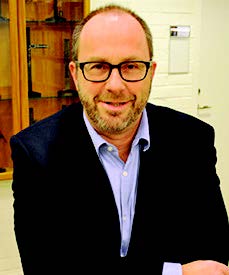
Professor Dr. Johan Malmqvist
Dean of Education
Chalmers University of Technology
Co-leader and Co-founder of CDIO Worldwide Initiatives
Johan Malmqvist is the Chair Professor in product development, and the Dean of Education at Chalmers University of Technology, Gothenburg, Sweden.
His research addresses product development methodologies and IT support for product development. His
current research focuses methods and tools for product data analytics, for product configuration and for
personalized medicine.
Another area of interest is engineering education. Malmqvist was one of the co-founders and stills leads the international Conceive-Design-Implement-Operate (CDIO) Initiative. The engineering education model that has
been developed by the CDIO Initiative has been adapted by a large number of across the world.
Introduction to the CDIO approach to engineering education – motives, implementation and effects on educational quality
Engineering educators of today face many challenges including to how to bring forward design & innovation, how to embrace new digital engineering and learning tools and how to, in addition to engineering knowledge, also equip graduate with the personal and professional skills needed to become leaders in international settings.
The talk will first introduce the principal elements of CDIO (Conceive-Design-Implement-Operate), an approach
to engineering education that relies on the product or system lifecycle as a context for the education. The CDIO
model was originally developed at MIT but has since spread across the world.
The talk will then review the implementation of CDIO at Chalmers University of Technology, Gothenburg,
Sweden. With the mechanical engineering programme as main example, we will show how key CDIO elements
such as design & innovation projects, simulation-based mathematics, student prototyping labs, integrated learning
of teamwork and communication, entrepreneurship can be realized.
Finally, the talk will examine the impact of CDIO implementation on educational quality. In particular, it will be shown how the CDIO standards and tools can support quality improvement and assurance aiming at obtaining
international and national accreditation.

Mr. Lim Peng Hun
Deputy Principal (Technology & Industry)
Chief Technology Officer of Singapore Polytechnic
Lim Peng Hun is currently the Deputy Principal (Engineering) at the Singapore Polytechnic. He oversees the Engineering
Cluster in the Polytechnic. He is active in promoting technology & innovation, applied R&D, entrepreneurship, consultancy,
industry partnership and continuing education. He is a strong believer of Innovation in Education. An early adopter and
champion of technology enabled learning & green initiatives, he was the team leader of SunSpeed solar car team which
participated in the 5th World Solar Car Competition. He proposed and led the adoption of CDIO (Conceive, Design,
Implement and Operate) training framework for all Engineering Schools in Singapore Polytechnic. His current interest is
in promoting the culture of sustained innovation in Singapore Polytechnic. He spearheads Singapore Polytechnic’s latest
thrust in developing staff and students’ competencies in digital fabrication and innovation mindset for industry 4.0 economy.
Industry Transformation: Challenges and Opportunities for Engineering Education
In many countries around the world, and in Singapore, the 4th Industry Transformation, or Industry 4.0, has begun. This
industrial transformation is characterised by the convergence of four disruptive technologies: Additive Manufacturing,
Robotics, Internet of Things and Big Data Analytics. In this transformation, as with the others, Engineering is key to driving
technological innovations.
How can educational institutions respond to the needs of industry as they transform? What factors do educational
institutions need to consider and implement to prepare engineering students for the changing industries?
In this session, the presenter will share the challenges faced in transforming the polytechnic’s engineering education. He
will share an approach educational institutions can adopt and the input they can draw on to better understand the goals and
needs of industry and to translate these needs to capability building and curriculum development.
The presenter will share how the integration of Design Thinking and, in particular, Fab Lab skills and activities with CDIO
could develop and deepen the technical and innovative skill sets of engineering students. Fab Lab SP began in 2013 and
is the result of collaboration among School of Electrical and Electronic Engineering (EEE), and School of Mechanical and
Aeronautical Engineering (MAE), it was conceived to allow staff and students to make “almost anything”.
Fab Lab SP is part of the global network of Fab Labs (http://www.fabfoundation.org/index.html) which began as an outreach
project from MIT’s Centre of Bits and Atoms. It currently houses equipment such as 3D printers, laser cutters and 3D CNC
Prototype Mill. It provides hands-on training in cutting edge technology and aims to be a place where students from across
schools can collaborate on multi-disciplinary projects. A driving force behind the Fab Lab is the notion of “Makers Culture”
– a concept which encourages creative learning through doing and nurtures intrinsic motivation for self-learning.
Invited Speaker
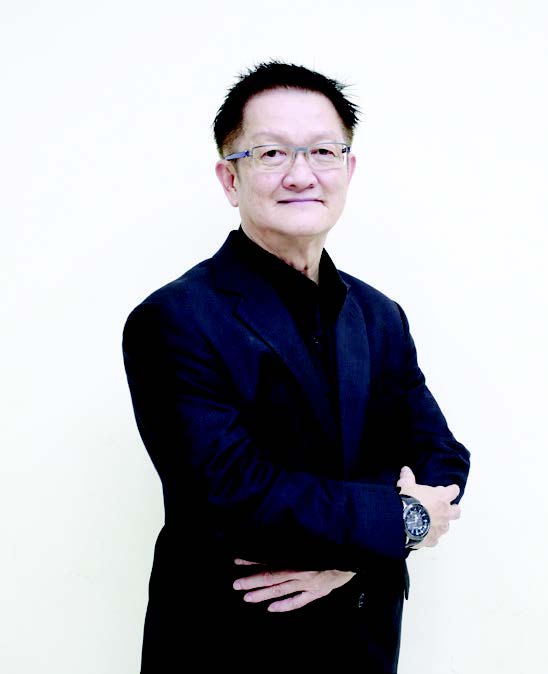
Dr. Sampan Silapanad
Vice President and General Manager
Hard Disk Drive Operations, Thailand - Western Digital Corporation
Dr. Sampan has more than 30 years of experience in Quality Assurance, Reliability and manufacturing of
semiconductor and Hard Disk Drive Operations. Currently he is a Co-Chairman, World Association for Cooperative
& Work-Integrated Education (WACE) and a Vice Chairman of Thai Association for Cooperative Education.
He serves as a board of committee for the Institute for the Promotion of Teaching Science and Technology (IPST). He received the Dr. Jack A. Curry Employer Award for Professional Achievement in CWIE by World Association
for Cooperative & Work-Integrated Education (WACE) from WACE 19th World Conference on Cooperative &
Work-Integrated Education, Kyoto, Japan and the Leadership Award for Leading Development of Co-Operative
Education & International Work-Integrated Learning (WIL) from Southern African Society for Cooperative Education
(SASCE), WIL-Africa Conference Program, Johannesburg, South Africa in 2015.
Khun Sampan graduated with a Bachelor of Engineering in Mechanical Engineering - Kasetsart University, Master of Management - Sasin Graduate Institute of Business Administration of Chulalongkorn University and Honorary
Doctorate in Industrial Engineering, - Suranaree University of Technology.
What Industry Expect from University Graduates - Future Trend
Industry is the fastest move sector especially in today’s era that technology move so fast, industry is the first sector that adopt technology into implementing reality. However, availability of skill manpower is a limitation. As industry is shifting into Industry 4.0 in a very near future, technology will change much more frequent than the past and the desired manpower skills are shifted as well.
Characteristics of the new graduates who is coming into the real sector is shifting now. In term of hard skills, they must be deeply understand the basic fundamental in all the areas because most of the new technology are applied from many fields together. In term of soft skills, they must be able to understand the big picture, critical thinking, decision making, be flexible, open for any changes, life-time learning and could adapt to the new things fast.
As industry is moving fast, the new hired are expected to be ready for working so they must practice and develop those working skills since university time or even earlier.
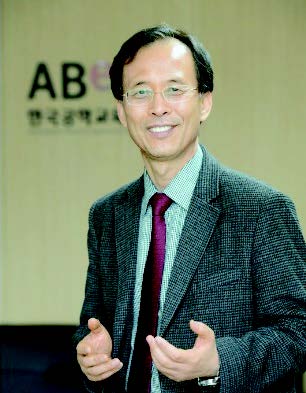
Professor Dr. Song Dong Joo
Senior Vice President
Accreditation Board for Engineering Education of Korea (ABEEK)
Director of Yeungnam University Hub Center for Engineering Education
Professor Song has been the Director of Yeungnam University Hub Center for Engineering Education and a director of Innovation Center for Engineering Education for more than 5 years.
Prof. Song has been working in Accreditation Board for Engineering Education of Korea for more than 17 years. He is a senior vice president taking charge of ABEEK operation. His major is mechanical engineering, fluid mechanics, engineering design, engineering education and most recently design thinking. He published numerous research papers in mechanical engineering and also in engineering education. Last year he published ‘design thinking’ and taught design thinking as university liberal art course, engineering design with design thinking. He has given numerous design thinking lectures and works in Korea since 2013.
The Innovations in Engineering Education at Yeungnam University Hub Center for Engineering Education including Design Thinking Education
Yeungnam University Hub Center for Engineering Education Innovation has been designated by Korea Government and supported since 2012. Participating universities to YU Hub Center are 18 around the countries. The goal of Hub Center is educating ‘new fusion technology’s innovators with creative confidence’. To fulfill the objectives we have several strategies including improving creative new fusion technology skill, creativity. convergence problem solving capability, building global network, fostering leadership, communication and teamwork skills. Specific programs are as follows: International Design Thinking workshop, Hub Center workshops, Creativity.Convergence Camp with Design Thinking, International Capstone Design Project Camp (building electric vehicles), Engineering Education Festival, Enjoyable Design-Project contest & new-fusion technology training program and global field training program in engineering education and International Capstone Design Project Exchange. We developed design thinking courses including ‘design thinking’, creative engineering design with design thinking, Capstone Design Projects with design thinking, etc.
We have tried many new ideas to innovate engineering education and transferred to participating universities. Also participating university share their innovative education methods and programs among each other. Thus this Hub Center/Innovation Center for Engineering Education Program has been successful in Korea and have been supported by the government for ten years continuously. The basic concepts of the programs are cooperation through Hub Center and competition among Innovation Centers. By doing so it enhances engineering education innovation significantly.

Dr. Ron Hugo
Associate Dean (Teaching & Learning)
Department of Mechanical & Manufacturing Engineering
Schulich School of Engineering
University of Calgary
Ron Hugo is Associate Dean of Teaching and Learning and the Li Ka Shing (Canada) Foundation Chair in
Engineering Education Innovation at the Schulich School of Engineering, University of Calgary. His engineering
education activities include project-based learning, inquiry-based learning, and the exploration of the everchanging
landscape of higher education as brought upon by the digital revolution. His work with online education
includes his Mechanical Engineering YouTube lectures which assist engineering students from around the
world. His current research involves thermal-science investigations of pipeline systems.
Engineering Education in the Digital Age with an Invitation to the 2017 International CDIO Conference
The digital revolution has ushered in transformational change that has not been seen since the 1780’s when steam-powered rotary engines were first used to drive factory machinery during the first industrial revolution. This second machine age, as proposed by Brynjolfsson and McAfee, is one of content digitization, zero-cost replication, and combinatorial advantage. The ubiquitous and socialized nature of this revolution is such that it has changed the mindset and habits of incoming students in an unparalleled manner. Yet engineering education systems have been slow to react and adapt to these changes. In this talk, it will be argued that by both adapting to and embracing these changes, a new era in engineering education can be realized. Experiments in lecture theatre design, instructor-student activities, and assessment methods will be discussed. The talk will conclude with an examination of how embracing this new era in engineering education will strengthen a wider range of attributes from the CDIO syllabus.
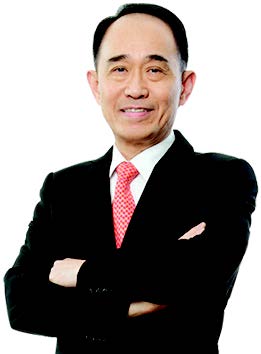
Mr. Kan Trakulhoon
Director and Chairman of Managing Advisory Committee
Siam Cement Public Company Limited
Kan Trakulhoon is the Director and the Chairman of the Management Advisory Committee of Siam Cement Group (SCG).
He retired from President and CEO of SCG in January 2016. Kan had been actively involved with the government sectors in the
drive to reform and restore Thailand’s economic stability ever since. Kan heads two Public-Private Partnership Committees
initiated by the Royal Thai Government, namely the Innovation and Productivity Committee and Legal Reform Committee
along with the Eastern Economic Corridor (EEC) project. Kan was previously an outside Director of Kubota Corporation and
is now Global Advisor to Kubota Corporation and Member of the Advisory Board of Nomura Holdings, Inc. both of which are
headquartered in Japan. Moreover, Kan is Chairman of the Board of Directors of Advanced Info Service Public Co., Ltd. and
Independent Director of Siam Commercial Bank Public Co., Ltd.
Next Generation of Engineers and the Creation of Innovative Organization
The three main components for developing innovative goods comprised of the innovation in products, process and
business.
The education are timeless. I have taught much during the past ten years and learnt together with the students. It is necessary
to be well informed and gain new knowledge. When I traveled, I spent the time reading to gain new and diverse information.
It is necessary to be humble and be unrelenting in the thirst for knowledge. By nature, a generation Y person has high
thinking ability. However, it is more important to manage and catalogue the ideas and thoughts. Both generation Y and Z
people have lots of ideas and are quick learners due to new technology. However, generation Z people are more extreme
in certain aspects; they are more IT literate, dislike to be constrained and have high confidence. These are people who will
be the main driving force in the future.

Professor Dr. Xi Wu
Department of Electronic Engineering
Chengdu University of Information Technology
Dr. Xi Wu is a Professor and the Deputy Dean of Department of Computer Science, Chengdu University of
Information Technology, and he is also the director of Collaborative Innovation Center for Image and Geospatial
Information of Sichuan Province, P.R. China.
Dr. Wu’s main research area is the development of novel methods for analysis of imaging data. He has been also
involved in cognitive studies cooperated with Computational intelligence since 2008 when he joined the Sichuan
University and Institute of Imaging Science, Vanderbilt University for Ph.D. study. In 2012, Dr. Wu was with
Oxford Centre for Functional MRI of the Brain, University of Oxford as a postdoctoral researcher.
The Implementation of CDIO in Chengdu University of Information Technology: A Systematic View from University
Chengdu University of Information Technology (CUIT) has implemented CDIO for the whole university in all 53 disciplines for nearly 10 years. The presenter will first give a small description of why and how the university decided to implement CDIO 10 years ago. Then the whole framework of the implementation of CDIO in CUIT will be introduced and followed with the achievements. The challenge and points should be pay more attention were also mentioned.
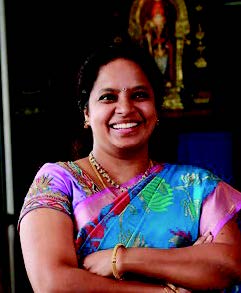
Mrs. Rangarajan Mahalakshmi Kishore
Chairperson Managing Trustee
Veltech Dr.RR & Dr.SR University
Mrs. Mahalakshmi is a renowned institutional builder in south India. She is a key stakeholder in several schools
and institutions offering Engineering, Technology, Management and Science education under Veltech group.
She obtained her Bachelors in Engineering in Industrial Engineering from Anna University, Chennai, with
Distinction and Masters of Business administration with specialization in Finance from UK. She is instrumental
in bringing educational reforms such as Outcomes Based Education at school and university level, assessment
and evaluation reforms and faculty capacity enhancement initiatives. She serves in the Governing Board of several
educational institutions as chair/members. She participates as representative of educational philanthropists
in many government committees. She visited Sweden as a member of the President of India delegation.
Enhancing Faculty Teaching Competency through Peer Interactions
The technological advancements, happened during recent decades in all the sphere of our life, created a big cultural change among the student community including their learning styles and attitudes. Though abundant of learning materials are available now-a-days in the world-wide websites in various forms such as animation, video lectures and text materials, teacher role is inevitable role in the students’ learning process. Having realized cultural, socio-economic and technological developments, a systematic, university-wide approach has been modelled last year to creating an encompassing movement towards enhancing the faculty teaching skills to fit themselves for Y-Gen students of 21st Century. Veltech founded a new faculty learning forum “Teaching Developers Initiative (TDI)” wherein a select faculty group will meet every Friday and explore and interact their innovative teaching methods attempted in their classrooms. Active learning methods such as Experiential, Collaborative, Problem-based, Project-based learning, Jigsaw, Think-Pair-Share, Gallery walk and Fish bowl are some of the novel teaching methods employed by the faculty members in their classrooms. The outcomes of the active learning implementation are well evidenced by the students’ learning.
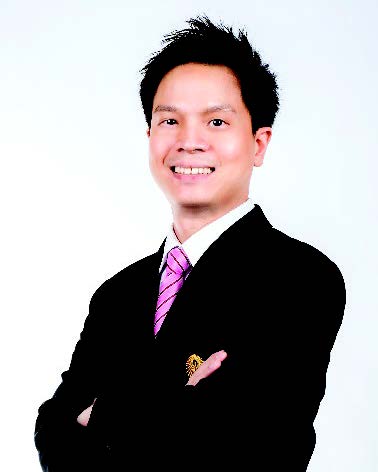
Associate Professor Dr. Atiwong Suchato
Vice Dean
Faculty of Engineering, Chulalongkorn University
Dr. Atiwong Suchato is currently the Associate Dean overseeing the education strategy of Chula Engineering.
Graduated from Massachusetts Institute of Technology in 2004, Dr. Atiwong Suchato has been teaching in the
Department of Computer Engineering for more than 10 years. During those years, he has always been passionate
about effective teaching techniques and tools that enrich the learning of new generations of Thai engineers.
Originally trained in the field of Speech Recognition, Dr. Atiwong Suchato applied human-centric principles to
Engineering Education as well as the development of related Education technologies. His key contribution in
recent years was the development of a Learning Management System named “myCourseVille” which has been
operational at Chulalongkorn University for more than three academic years and has been designated as a key
element of the university’s future Education Technology ecosystem.
Currently, he and his team are actively driving the implementation of a CDIO-inspired education framework at
Chula Engineering.
Driving Modern Day Education with myCourseVille
In this talk, the speaker introduces a home-grown Learning Management System (LMS) called “myCourseVille”, which was originally developed as an endeavor to connect learner’s learning activities to their social network lifestyle. Gaining popularity among a group of instructors, Chulalongkorn University, aiming to raise its instructors’ LMS adoption rate, funded the continuing development of the LMS in order for “myCourseVille” to be a realistic alternative to the other commercially available LMS package that the university has been paying for the services for more than a decade. Not only that “myCourseVille” met the initial objective but various extensions were also consequently developed to support some of the university’s strategic moves including: Tools for Active Learning implementation, Platform for Learning Analytics researches, and Online-course distribution platform. Faculty of Engineering deployed the system to support the management of the integrated curriculum standard in the faculty’s CDIO implementation as well as its program accreditation process. Today, “myCourseVille” serves as a success case where an in-house LMS development has been nurtured into a functioning education platform service made available to a number of schools and institutes in Thailand.
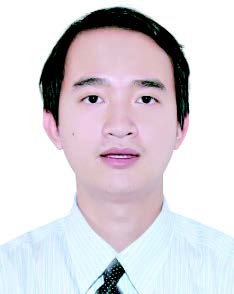
Dr. Bao N Le
Vice Provost
Duy Tan University
Dr. Bao Le is the Vice Provost of Duy Tan University (DTU), in charge of the Technology & Engineering Division. He has brought about the adoption of CDIO at DTU since 2011, and has helped sustain the university-wide CDIO effort until now. His specialty is in data warehousing, 3D animation, and online marketing. He holds doctorate degrees in both Business Administration and Computer Science.
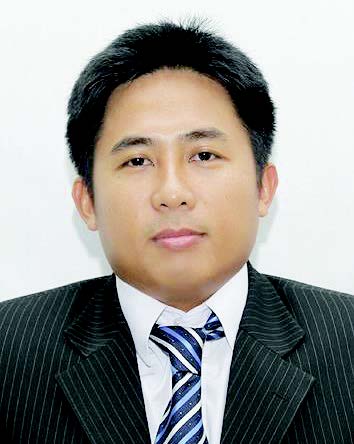
Dr. Tan N Tran
Director of the Quality Assurance Center
Duy Tan University
Dr. Tan Tran is the Director of the Quality Assurance Center at Duy Tan University. He has helped with the
deployment of CDIO and PBL at Duy Tan University during the last four years. He also has great experience
mentoring students who participates in the CDIO Academy and other international tournaments, mostly notably
the CDIO Cup for DTU in 2013. He holds his doctorate degree in Environmental Engineering.
Automatic Assessment of Students’ Performance and Accreditation Requirements
Assessment of students’ performance and program accreditation requirements is not an easy job given the time-consuming nature and heavy load of data documentation, data cleansing and data integration from various sources and levels of assessment. Being the quality-assurance basis for many engineering programs around the world, the CDIO Framework with its many syllabus levels has been very helpful in guiding schools and educators around the world through different stages of assessment to arrive at relatively accurate assessment results. Usually, the higher the CDIO syllabus level one program may adopt, the more accurate its assessments become. However, it is always very difficult to ensure the data integrity and validity for decision making at the high levels of the CDIO syllabus, for instance at its 4th-level syllabus. At Duy Tan University (DTU), an automatic assessment system built on top of its Learning Management System (LMS), which helps assess the requirements of the CDIO syllabus up to its 4th level, has recently brought about a great leap in the amount of time and effort required to assess students’ performance as well as to measure ABET, AUN, KAAB accreditation requirements. It, however, also brings about a great number of issues that needs to be discussed in terms of decision making procedures, assessment benchmarks, cross-division data difference, etc. Our presentation, as a result, will showcase our efforts and experiences for automatic performance assessment with the hope of encouraging further discussion amongst the audience about the future of performance assessment in our engineering community using the CDIO Framework.
Sharing CDIO Experiences

Dr. Linda Lee
Principal Consultant
Singapore Polytechnic International
Linda Lee has about 20 years of experience in the education arena and; is currently the Principal Consultant with
Singapore Polytechnic International overseeing the implementation of Quality Assurance Framework and the
engineering education model, CDIO Framework (Conceive, Design, Implement and Operate).
She was the Deputy Director in the School of Mechanical and Aeronautical Engineering and led the CDIO
implementation in that school since 2006. Over the last few years, she has been working with partner universities
in Malaysia, Thailand, Vietnam, Indonesia, Philippines and Mongolia on implementing CDIO in their engineering
curriculum. She has also conducted CDIO workshops for China, India and Korea delegates and the Institute of
Education (ITE) in Singapore.
Linda graduated with a Bachelor of Science Degree in Production Engineering and Management (1st Class Honours) and PhD in Information Technology from Loughborough University in the United Kingdom.
CDIO, What’s Next?
Singapore Polytechnic has been working with ASIA partner universities in implementing CDIO program since
2011. At the end of the programme, they were able to redesign their existing curriculum in accordance to CDIO
skillsets and interpret the CDIO standards for their local context. Following the basic CDIO programme, the
institutions now seek to look broader and deeper at the current goals, visions and pedagogical foundation of
CDIO to meet the changing needs of industry and the new generation of students.
The talk discusses the next phase of CDIO implementation and centres on enhancing the curricula with the
aim of educating students to become effective and productive professionals in conceiving, designing and
implementing innovative ideas and solutions. The former comprises Mapping CDIO Skillsets against the future
graduates’ attributes required by the rapidly changing industry in meeting future challenges; Enhancing CDIO
Skillsets where students from different disciplines work together on multi-disciplinary projects; Innovating CDIO
Learning and Space for creative teaching, learning approaches and learning space innovation; and Sustaining
CDIO to support and monitor programme execution to facilitate advancement of CDIO.
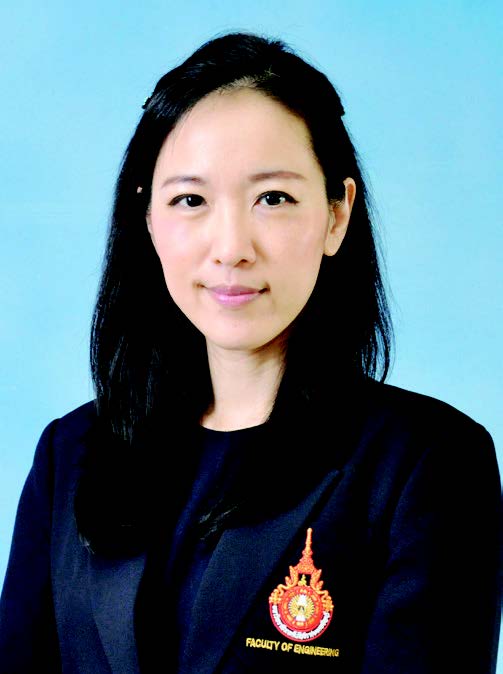
Associate Professor Dr. Natha Kuptasthien
Assistant to the President for International Relations and Director of International Strategy Division
Rajamangala University of Technology Thanyaburi, RMUTT
Natha was the former Head of Industrial Engineering Department, Faculty of Engineering, RMUTT and led the full CDIO implementation for industrial engineering program since 2013. Her research areas are productivity improvement, quality management and engineering education. She has been invited to talk about CDIO framework to several Thai universities. She has conducted a number of CDIO introductory workshops for engineering and nonengineering programs, which expanded the CDIO network to 8 RMUTs and universities in Thailand. Natha graduated with a Bachelor of Engineering Degree in Industrial Engineering from Chulalongkorn University, Master of Science and PhD in Engineering Management from University of Missouri-Rolla, USA.
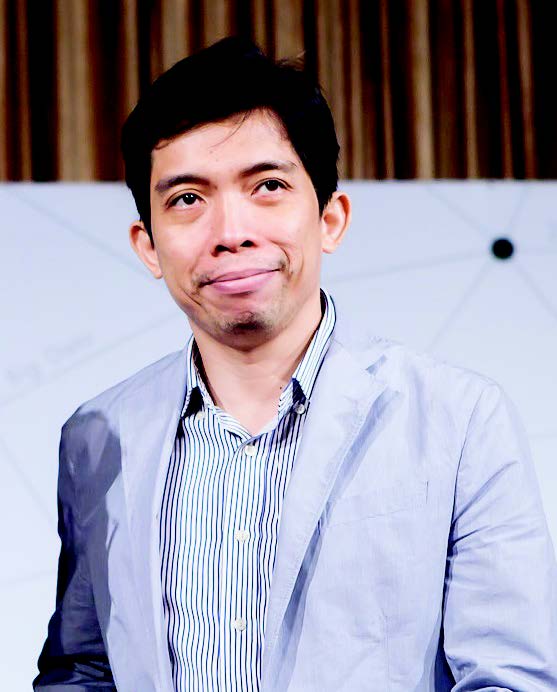
Associate Professor Dr. Angkee Sripakagorn
Department of Mechanical Engineering, Faculty of Engineering, Chulalongkorn University
Angkee Sripakagorn is an Associate Professor of Mechanical Engineering Department, Faculty of Engineering,
Chulalongkorn University. His main research areas of interest are alternative energy, energy conversion devices
and automotive engineering. Besides the academic research, Angkee cofounded the Engineering Education
Initiative, EEi with Associate Professor Kuntinee Maneeratana at the Faculty of Engineering, Chulalongkorn
University since 2009. EEi has done a large number of research studies and faculty trainings in engineering
education. The collective effort of EEi members led to the formation of the Chula Engineering Education 4.0, the
framework to restructure the teaching and learning experience in engineering that is now fully adopted by all
departments.
CDIO Thailand – The Way Forward
RMUTT has participated in Conceive, Design, Implement, and Operate (CDIO) Framework for Re-Thinking
Engineering Education since 2013. RMUTT has integrated CDIO-based Education into university’s strategic
plan. Major changes and improvement involve in integrated curriculum development, workspace renovation,
teaching and learning methods, faculty member competency enhancement as well as assessment methods.
RMUTT has been appointed as CDIO collaborator in the CDIO Worldwide Initiatives since March 2014.
Chula Engineering took the steps of CDIO to, among many moves, create new active learning space and design
workspace for students. The active implementation of CDIO framework leads to the formation of the Chula
Engineering Education 4.0, the framework to restructure the teaching and learning experience in engineering
that is now fully adopted by all undergraduate programs at Chula Engineering since 2014.
The two institutions have formed “CDIO Thailand” as a partnership in collaboration to promote the CDIO
implementation in Thailand and their international partners. RMUTT is now the key coordinator to expand CDIO
framework to other 8 RMUTs nation-wide.
With the enthusiasm of infusing Social Engagement and Innovation to students, Engineering First course is
provided to 1st year engineering student at Chulalongkorn University. RMUTT takes part in Learning Express
project with Singapore Polytechnic and held the 1st ASEAN Young Leaders for Social Innovation in 2016.
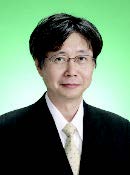
Professor Dr. Masaaki Shikada
Dean of Major Basic Education
Professor, Civil and Environmental Engineering
Kanazawa Institute of Technology
Masaaki Shikada received a Bachelor of Science, Masters of Science, and PhD degree from Kanazawa Institute of Technology, in 1976, 1983 and 1990, respectively. He became Registered Surveyor and Senior Professing Engineer Educator in 1998 and 2005. His special field of research is Survey and Geospatial Information. His social contributions include work with the Japan Society of Photogrammetry and Remote Sensing (JSPRS), Japan Association of Surveyors (JAS), Geographic Information Systems Association of Japan, Navigation and Timing of Japan (IPNTJ), and Institute of Electrical and Electronics Engineers Geoscience and Remote Sensing (IEEE GRS). His current research includes an original Japanese navigation satellite, the Quasi-Zenith Satellite (QZS) MICHIBIKI that relates positioning accuracy estimations based on experiments of L-Band Experiment (LEX) signals.

Assistant Professor Robert W. Songer
Robert W. Songer has been teaching at Kanazawa Technical College in Japan for 8 years as a teacher of the
Computer Science and Information Technology professions. His work contributes to a progressive educational
program that seeks to produce global engineers by teaching technical subjects in English for students of English
as a second language. Japanese students of ages 15 to 20 master topics in programming and software
engineering with the intention of putting their knowledge to work in an international workplace. Robert has
been involved with the CDIO Initiative since 2010 when Kanazawa Technical College became the first Japanese
school to join, and he is a lead organizer for the 2018 International CDIO Conference in Kanazawa, Japan.
An Introduction to Engineering Education on the KIT/KTC Campus with an Invitation to the 2018 International CDIO Conference
The Kanazawa Institute of Technology (KIT) 4-year university with graduate school and Kanazawa Technical
College (KTC) 5-year integrated high school and junior college share a campus in the traditional Japanese city
of Kanazawa. Together, the schools offer engineering education from as early as age 15 all the way to Doctorate
level. This talk introduces the city of Kanazawa, the faculty of KIT, and its unique engineering design education
program called “Project Design”. Additionally, a new vision from the President calls for co-creative education
capable of producing innovative design that spans generations, disciplines and cultures. Following that, KTC is
introduced as a school that traditionally begins engineering education from the pre-tertiary level while currently
embarking on unprecedented educational reform. Through the reform, a new curriculum and campus will create
a program that includes a 2-year residential system with full English instruction and mandatory 1-year overseas
study aiming to foster leadership values and international perspectives. Finally, the talk will conclude with an
invitation to see it all in action at the 14th International CDIO Conference in Kanazawa, Japan.
Tutorial Session
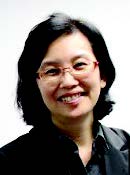
Ms. Helene Leong
Director, Department of Educational Development
Singapore Polytechnic, Co-chair of CDIO Asian Region
Helene Leong is the Director of the Department of Educational Development at Singapore Polytechnic. Her
Department leads the development and implementation of educational initiatives in the institution and is in charge
of faculty development. Her current focus is on the use of technology in education, enhancing students’ intrinsic
motivation, enhancing workplace learning, and teaching and learning strategies for the formation of professional
identities. She is also the co-leader for the CDIO Asian region and a member of the CDIO council.
Introduction to CDIO: A Framework for Engineering Education
Many engineering programs are faced with 3 key challenges: Firstly, there is the ever increasing body of
technical knowledge that graduating students are expected to command; Secondly, the growing recognition
that young engineers must possess a wide array of personal, interpersonal, and system building knowledge and
skills that will allow them to function in effectively; and Thirdly, the falling interest and motivation of students to
study engineering. In order to resolve these challenges, we must review our vision and concept for engineering
education.
In this workshop, you will learn about the CDIO strategy to address these challenges. These include:
1. Curriculum reform to ensure that students have opportunities to develop the knowledge, skills and
attitudes to conceive and design systems and product
2. Improved level of teaching and learning necessary for deep understanding of technical information
and skills and engagement
3. Experiential learning environments to support the students’ learning of engineering concepts and
practice
4. Effective assessments and evaluation methods to determine quality and improve the learning
process.
